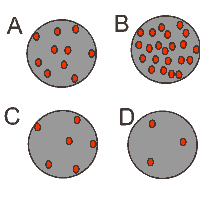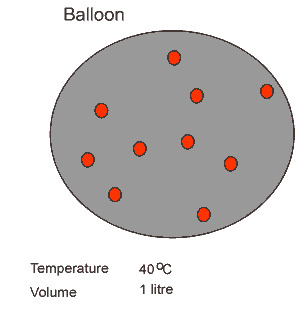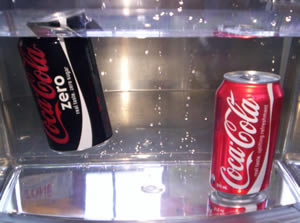Density is the mass of a substance per unit of volume. Density depends on the number and mass of particles that make up the substance in a given volume of the substance.
The image on the right shows the number of particles of a substance at four different stages. The volume of the substance is fixed. Stage "B" represents the stage with the greatest density while stage "D" is the least dense.


If we know the mass of a substance and its volume we can calculate its density using the expression
Density = mass/volume
Design an experiment to calculate the density of different fruit. Click to see a hint on how you can measure the volume of the fruit.
|
Fruit
|
Mass(grams)
|
Volume
|
Density
|
|
apple
|
|
|
|
|
banana
|
|
|
|
|
orange
|
|
|
|
|
pear
|
|
|
|
|
plumb
|
|
|
|
Density of rocks -activity
Assuming that each can contains 375 mL of liquid what can you say about the density of Coke Zero as compared to normal Coke?
Each can contains 375 mL of liquid. Normal Coke contains 40.0 g of sugar in each can while Zero contains 0.4 grams of sugar. Calculate the density of each liquid assuming it contains only sugar and water.
If the density of water is 1.0g/cm3 explain why Coke Zero floats while normal Coke sinks.
